Things You Have To Know About Taiwanese Mandarin
What Are the Differences? Things You Must Know Before Learning Taiwanese Mandarin
Is there a difference between Taiwanese Mandarin and Standard Mandarin?

In a word – yes!
There is definitely a difference (or several) between Taiwanese Mandarin and Standard Mandarin.
Every language can be varied when being used or spoken in different regions.
The factors which influence and cause the variations may include geography, weather, culture, history, policy, generation, social composition, local dialects, etc.
Different places where Mandarin is spoken, tend to have some differences in vocabulary, tone, writing system and more, think of how different it must be in different provinces of China, Hong Kong, Singapore etc.
Taiwanese Mandarin || Difference between Mandarin and Chinese
Taiwanese Mandarin || Do Taiwanese speak Mandarin?
Taiwanese Mandarin || Interest in learning Taiwanese Mandarin
Taiwanese Mandarin || Pronunciation
Taiwanese Mandarin || Grammar
Taiwanese Mandarin || Lexicon
Taiwanese Mandarin || Tones
Taiwanese Mandarin || Experience sharing
Taiwanese Mandarin || Doubts or Questions?
Taiwanese Mandarin || Bonus Points
Taiwanese Mandarin || FAQs
Want to hear first-hand about what it’s like learning in Taiwan?
Check this out…
What’s the Difference between Mandarin and Chinese?
OK before we get into Taiwanese Mandarin, a hugely common question we get asked is…
“What is the difference between Chinese and Mandarin?”
So let’s set the record straight with that first and foremost…
Chinese
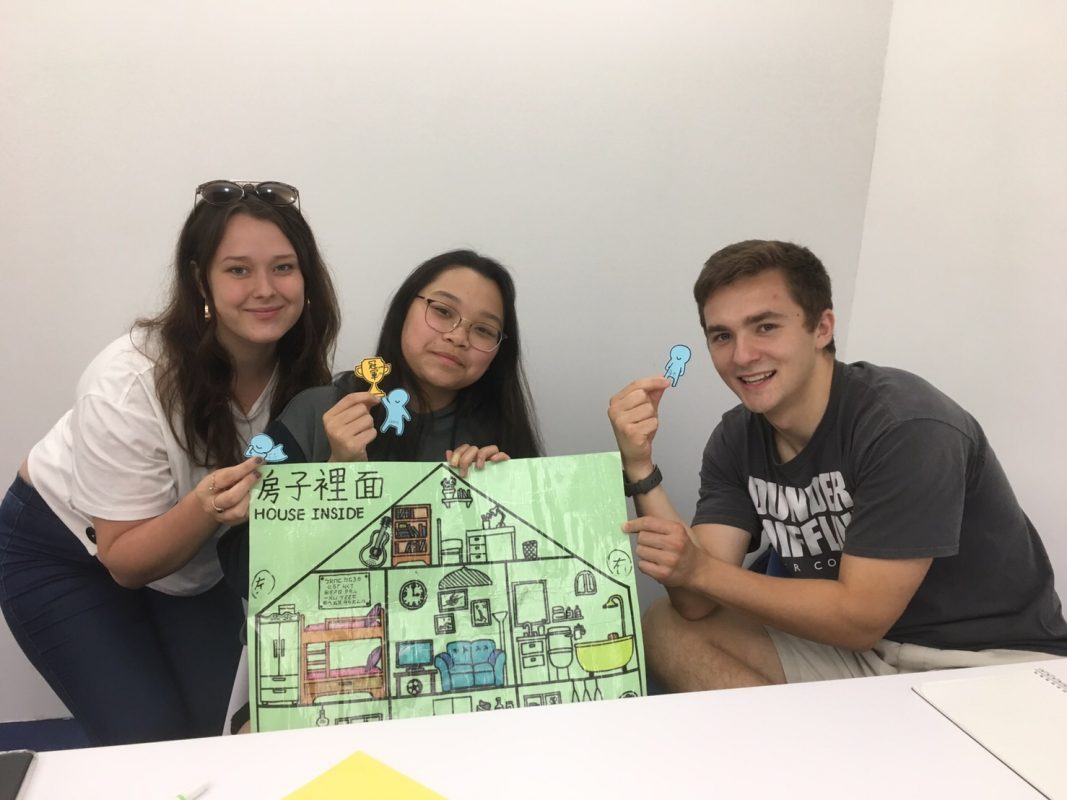
The term “Chinese” refers to a common language spoken in China, but actually, it is a linguistic group (part of the Sino-Tibetan linguistic family) that encompasses hundreds of local language varieties, generally classified into seven main regional languages/dialects 方言: Mandarin, Cantonese, Hakka, Wu, Min, Xiang, and Gan, each one including its own sub-dialects.
Therefore, when we talk about the Chinese language, we should consider there is no such a unique language as “Chinese”, but there are instead many varieties (Chinese languages), among which the most common one is Mandarin.
Mandarin Chinese
Mandarin Chinese: 官话 (guānhuà), literally the “speech of officials”, is the native language of two-thirds of the population.
It encompasses a group of related varieties of Chinese spoken across most of northern and southwestern China, and it includes the Beijing dialect, which is the basis of Standard Mandarin or Standard Chinese.
Modern Standard Mandarin Chinese is the official spoken language of the People’s Republic of China (PRC), the official language of the Republic of China (ROC, Taiwan), and one of the 4 official languages of the Republic of Singapore.
In Mainland China, people refer to the modern standard Mandarin as 普通话 (pǔtōnghuà), literally “common speech”, while people in Taiwan call it 国语 (guóyǔ), literally “national language” or 华语 (huáyǔ) “Hua (Chinese) language”.
So to sum it up quickly. Chinese refers to a large group of dialects, Mandarin being one of (the most popular by a comfortable distance) those dialects.
Got it? Let’s move on…
Do Taiwanese Speak Mandarin Differently from Chinese?
What language does Taiwan speak?
Apart from the fact that people in Taiwan use Traditional Chinese instead of Simplified Chinese as the writing system, there are still several differences between Taiwanese Mandarin and Chinese Mandarin.
Many people think that China is the only destination for them to learn Mandarin since it seems to stand for the “standard”.
However, it doesn’t mean that what you’ll learn in Taiwan won’t meet the specification. The situation is similar to the relationship between British English, American English and Australian English or between Spanish spoken in Spain and in Latin America.
Aside from Mandarin Chinese, which is the official language and spoken generally by everyone, Taiwan also uses various other languages, such as Taiwanese Hokkien and Hakka.
Did you know you can learn Taiwanese Hokkien with LTL?

Taiwan Aboriginal || The Truth Behind Taiwanese Aborigines
Taiwan Aboriginal || Taiwan has a deep and rich history of thousands of years, dating back to the days of Taiwan aboriginal inhabitants.
The Interest in Learning Taiwanese Mandarin
Since Taiwanese dramas and variety shows are getting more popular in the Mainland and many Taiwanese artists also actively participate and appear in Chinese TV programs, “knowing” and “imitating” how Taiwanese speak Mandarin has even become a new trend among those younger Chinese generations.
I personally didn’t realize it until many of the Chinese students that I met asked me, “Do I sound Taiwanese?”, or told me, “I am learning how Taiwanese speak Mandarin”.
Some western learners even come all the way to Taiwan just for learning Taiwanese Mandarin, too.
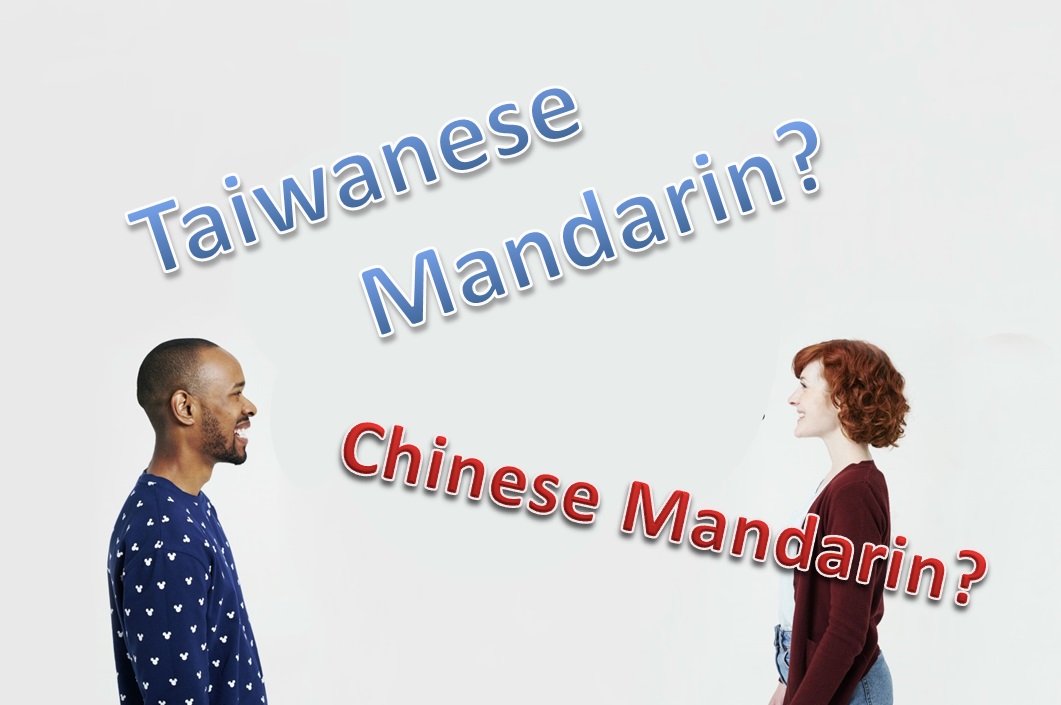
Later I am going to introduce some significant features of Taiwanese Mandarin which distinguish it from the Mandarin spoken on the Mainland. You will learn how to speak Mandarin like a Taiwanese local.
When interacting with Taiwanese, speaking Mandarin will make them impressed.
Nevertheless, speaking Mandarin with some local features from Taiwan will surprise them further and quickly bridge the gap between you and society, which will definitely bring you some advantages.
Taiwanese Mandarin – Pronunciation
Many Chinese people find that Taiwanese speak Mandarin more softly (which is nothing to do with volume) and the accent is very easy to distinguish. Nonetheless, how’s it possible to “speak softly”?
Weakening zh, ch, sh, r
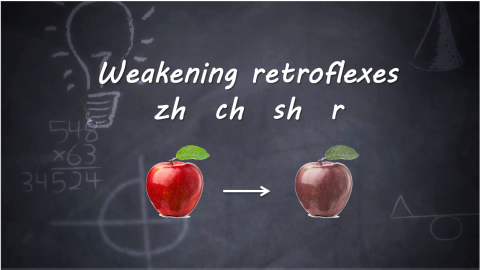
In Mandarin, the consonants zh, ch, sh and r are retroflexes, which are big challenges for many learners.
To pronounce them, you are supposed to raise your tongue to touch the palate with the back of the tongue tip.
The air stream goes through the extremely narrow space at the exact moment when the tongue tip leaves the palate and causes affricates zh and ch.
However, if the tongue tip doesn’t leave and the air stream goes directly through the blade of tongue and the palate, it thus cause fricatives sh and r.
In Taiwanese, the language most spoken in Taiwan apart from Mandarin, there are no such retroflex consonants.
Although people still pronounce them when speaking Mandarin, due to the influence of the Taiwanese, they don’t raise their tongues that much.
Perhaps it sounds a little abstract.
Let’s say, if we set a scale to evaluate the retroflex by measuring the tongue raising extent, and set Beijing Mandarin as 10, then Taiwanese Mandarin may fall in 6 or 7.
However, it doesn’t mean that it’s not a retroflex. Instead, it just sounds softer and doesn’t require that much effort to pronounce.
In even simpler terms, it means basically that a ‘zh’ sound in mainland China sounds similar to ‘g’ in ‘germ’, but in Taiwan it might be more similar to a ‘ts’ sound.
Inserting ‘U’ Vowel
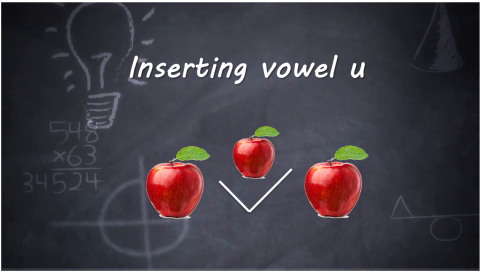
When talking with Taiwanese, if you pay attention, it’s not hard to find that they tend to insert an additional vowel u between the consonant and the vowel o or eng.
For instance, they pronounce:
- 魔法 mófǎ (magic) as muófǎ
- 老婆 lǎopó (wife) as lǎopuó
- 玻璃 bōlí (glass) as buōlí
- 颱風 táifēng (typhoon) as táifōng
- 聯盟 liánméng (alliance) as liánmóng
The list goes on…
Replacing ‘eng’ with ‘en’
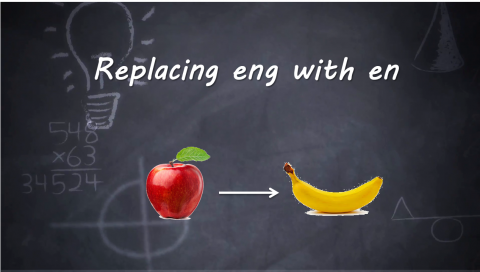
Another significant feature of Taiwanese mandarin is the transition from tongue root nasal eng to tongue tip nasal en, which can also be regarded as a weakening phenomenon since it makes the pronunciation sound less sharp and softer.
For example, you may hear people pronounce:
- 心情 xīnqíng (mood) as xīnqín
- 蜻蜓 qīngtíng (dragonfly) as qīntín
- 應該 yīnggāi (should) as yīngāi
- 聖誕節 shèngdàn jié (Christmas) as shèndàn jié
- 名字 míngzì (name) as mínzì
The list goes on!
BONUS || As well as differences in pronunciation, you may find that Taiwanese tend to be a bit *lazy* with their speech, or sometimes speak quickly and smush words together. Get used to hearing something that sounds like ‘dengyiya’ for ‘deng yi xia 等一下’…!
Taiwanese Mandarin – Grammar
The influence of Taiwanese can not only be found in the aspect of pronunciation, but also in grammar and sentence structures.
In the following, we are going to see one of the most typical sentence patterns in Taiwanese Mandarin.
「有」字句
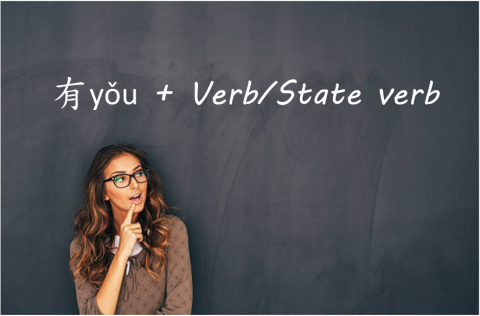
有 yǒu means “have”, which is only used to describe the status of possession in Standard Mandarin.
Therefore, we know that 有 yǒu can only precede a noun. For instance:
我有一隻狗。Wǒ yǒu yì zhī gǒu.
(I have a dog.)
他的朋友有三百元。Tā de péngyǒu yǒu sānbǎi yuan.
(His friend has three hundred dollars.)
你有機會在這間公司工作。 Nǐ yǒu jīhuì zài zhè jiān gōngsī gōngzuò.
(You have the opportunity to work at this company.)
我對你有信心。Wǒ duì nǐ yǒu xìnxīn.
(I have confidence in you.)
However, under the influence of Taiwanese, people even use 有 yǒu to convey that they have already done something or even to describe the emotional state.
In this case 有 yǒu can also precedes a verb or state verb. For example:
你有聽到聲音嗎? Nǐ yǒu tīngdào shēngyīn ma?
(Have you heard the sound?)
她有生氣嗎? Tā yǒu shēngqì ma?
(Has she gotten angry?)
你妹妹有吃飯嗎? Nǐ mèimei yǒu chīfàn ma?
(Has your younger sister eaten?)
他有沒有去過那家餐廳? Tā yǒu méiyǒu qùguò nà jiā cāntīng?
(Has he been to that restaurant?)
你有沒有想念我? Nǐ yǒu méiyǒu xiǎngniàn wǒ?
(Have you ever missed me?)
Although the usage of 有+Verb/ State verb is not correct according to Standard Mandarin, and your teacher will definitely tell you that it’s not allowed in classroom.
The truth is, everyone uses it sub-consciously and so regularly that you can hear it anytime and anywhere.
It’s been commonplace that some Mandarin teachers even start to argue that maybe it will become standard someday.
Taiwanese Mandarin – Lexicon
Some words in mainland China and Taiwan are completely different. If you’ve learnt mandarin in China and move to Taiwan, or vice versa, you’ll definitely notice this straight away as some very common words are very different.
For example, a bicycle is not a 自行車 like in mainland China but it’s a 腳踏車. If you’re ordering coffee in Starbucks and are really thirsty, you’ll want a 特大杯 (Venti) not a 超大杯 like in mainland China. And if you’re wanting to take it out – be sure to ask for 外帶, not 帶走. (Alternatively, if you’re staying to enjoy the free WiFi and aircon, tell them ‘內用’, ‘lit. use inside’).
Mixing Mandarin and Taiwanese is a common phenomenon in Taiwan, although you may not feel so if you live in Taipei.
Nevertheless, you will agree with me if you live outside Taipei or travel to another city or county.
Furthermore, there’s a tendency that the further south you travel, the more frequently you will hear people speaking Taiwanese.
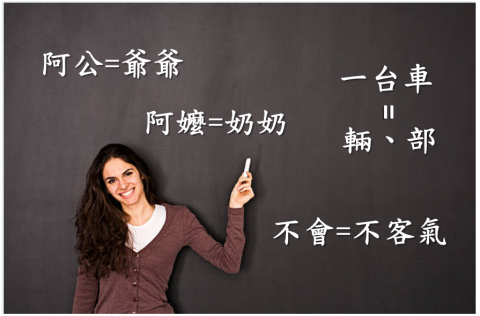
As a result, many words or terms can exclusively be found in Taiwanese Mandarin since they are directly borrowed or translated from Taiwanese.
For example, people call their grandparents 阿公 agōng (grandpa) and 阿嬤 amà (grandma) instead of 爺爺 yéye and 奶奶 nǎinai.
You may hear them say 一台車 yì tái chē (a car) and 一台電腦 yì tái diànnǎo (a computer) rather than 一部車 yí bù chē or 一輛車 yí liàng chē and 一部電腦 yí bù diànnǎo because in Taiwanese the quantifier for cars and machines is “tâi”.
Moreover, people in China usually say 不客氣 bú kèqì or 沒事 méishì to express “You’re welcome” or “No problem” when receiving others’ gratitude.
Nonetheless, in Taiwan aside from 不客氣, you can also frequently hear them say 不會 búhuì.
It means neither “unable” nor “will not” since it’s translated from bē or bōe, which in Taiwanese means 不會 but is also used to reply to people’s appreciation.
Taiwanese Mandarin – Tones
As well as different choices in vocabulary, Taiwanese uses different tones for some few vocabularly too.
Of course, people will still understand you, and there aren’t so many differences. So don’t worry, you don’t have to learn the tones all over again!
One example is 阿姨; in mainland China it’s Ā yí, and in Taiwan it’s ǎ yí.
Taiwanese Mandarin – Experience Sharing

Let me share two stories, which are my personal experience, to demonstrate how people can identify you by the accent or the way you speak Mandarin.
When I was little, my mother taught me at home instead of sending me to kindergarten.
In other words, the preschool education that I received was all from my mom.
I learned the pronunciation from her and from the audiobooks or teaching materials that she bought.
Later, when I entered elementary school, I surprisingly found that I spoke Mandarin differently from other kids.
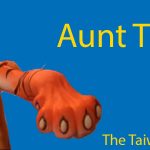
Aunt Tiger || Taiwan Legend and Nursery Rhyme
The story of Aunt Tiger is one of the shared memories of many Taiwanese. They also recognise it as one of the most terrible nightmares of their childhood.
Many people even thought I was from China. However, after some years of “socialization”, I gradually acquired the so-called Taiwanese Mandarin accent and thus sub-consciously changed my accent to sound like the other students!
Many years later, I went to Europe to study a masters degrees. One day after solving a problem for a Chinese student in class, he said 謝謝 (Thank you) and I replied 不會.
He was very surprised and realized that I was in fact from Taiwan.
The same story happened again and again in my workplace where I had to deal with lots of Chinese clients.
After some conversation, they usually got curious about my origin by my accent. Some even directly recognized the fact that I am Taiwanese.
Any Doubts or Questions?

It’s just about the variation of a language, nothing to do with the question of which one is superior or inferior.
Besides, you don’t have to worry that you can’t learn Mandarin well in Taiwan.
It is also said that learning Spanish in Barcelona might not be a wise choice since people there speak a lot of Catalan too, which may cause confusion.
However, according to my personal and others’ experience, we not only learned Spanish well without a problem, but also acquired Catalan naturally in our daily lives.
Likewise, those Mandarin learners in Taiwan can also prove this to you as well because I’ve seen many.
After all, learning a new language is like gaining a new soul. Therefore, choosing Taiwan as your destination to learn Mandarin is the cleverest decision because it’s like killing two birds with one stone!
Those differences between Taiwanese Mandarin and Chinese Mandarin that I’ve just mentioned are merely the tip of the iceberg.
So don’t forget to come back for more knowledge and useful information on this topic!
Final Bonus Points
Still hungry for knowledge? Check out Basic Chinese Grammar.
Want to kick-start your journey learning Mandarin online? No problem we have courses which can be tailored to you. Let’s get you started today!
Or if you want to go one better and come to Taiwan, check out what two of our students said about studying Chinese in Taiwan…
Taiwanese Mandarin FAQs
What’s the difference between Mandarin and Chinese?
Chinese refers to a large group of dialects, Mandarin being one of (the most popular by a comfortable distance) those dialects.
Does Taiwan use Simplified or Traditional Mandarin?
Taiwan uses Traditional Mandarin compared to the Mainland which uses Simplified. Traditional characters generally look more complex but actually some traditional and simplified characters are the same, or have very minor differences.
Discover more about the differences between Simplified and Traditional here.
Is learning Chinese in Taiwan different to learning Chinese in the Mainland?
The short answer is yes.
Every language can be varied when being used or spoken in different regions. Even in Mainland China, learning Chinese in Beijing, or Guangzhou would also be different given the fact each region has their own dialect. Either way, you’ll still be learning Mandarin.
Is Simplified Chinese understood in Taiwan?
Yes it will be. Mixing Mandarin and Taiwanese is a common phenomenon in Taiwan, although you may not feel so if you live in Taipei.
Do Mainlanders think Taiwanese sound very different?
Many Chinese people find that Taiwanese speak Mandarin more softly (which is nothing to do with volume) and the accent is very easy to distinguish. Taiwanese weaken certain sounds like Zh, Sh and Ch.
Those aforementioned consonants are called retroflexes. Let’s say, if we set a scale to evaluate the retroflex by measuring the tongue raising extent, and set Beijing Mandarin as 10, then Taiwanese Mandarin may fall in 6 or 7.
Want more from LTL?
If you wish to hear more from LTL Mandarin School why not join our mailing list.
We give plenty of handy information on learning Chinese, useful apps to learn the language and everything going on at our LTL schools!
Sign up below and become part of our ever growing community!
BONUS | Want to study the local Taiwanese dialect known as Hokkien? We provide Hokkien classes in person and online.
![[𝗢𝗟𝗗] LTL Taiwan Logo](https://old.ltl-taiwan.com/wp-content/sites/10/logo-ltl-header.png)

 Hi, my name is Manuel! I am from Spain and I am a Student Advisor at LTL and I’m based at our Taipei school.
Hi, my name is Manuel! I am from Spain and I am a Student Advisor at LTL and I’m based at our Taipei school.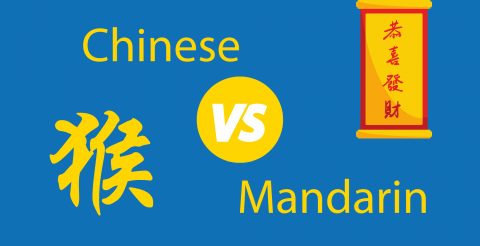
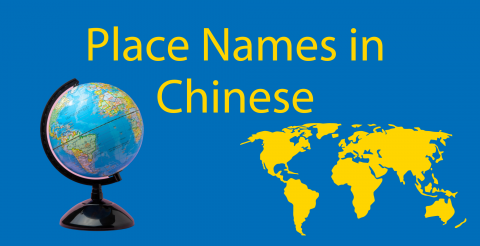
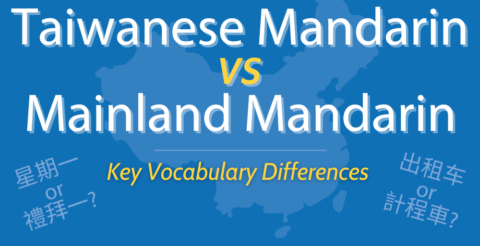
8 comments
[…] instead of Simplified Chinese as their writing system, there are still several differences between Taiwanese Mandarin and Chinese […]
Thanks for this useful article! Enjoyed it a lot
Pleasure! Glad you enjoyed
I had no idea that the Taiwanese and Standard Mandarin dialects were so different
Thanks for your comment Marcus, glad we taught you something today 🙂
[…] Taiwanese Mandarin | How Does It Differ? Things You Must Know […]
[…] you’re looking to learn Taiwanese Mandarin, it goes without saying that this is the podcast you want to listen […]
[…] know that Mandarin spoken in mainland China and Taiwan has some subtle differences. For example, Taiwanese Mandarin has weakened retroflexes (‘zh’, ‘ch’, ‘sh’ and ‘r’) and use slightly different […]